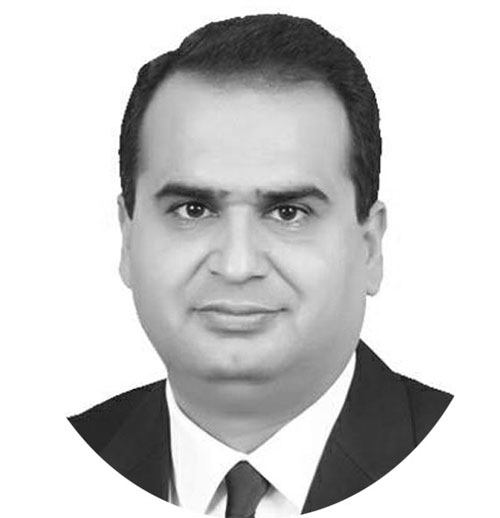Transgender persons rights
TRANSGENDER persons in Pakistan constitute one of the country’s most vulnerable and marginalized communities due to a multitude of inter-related socio-cultural, political, economic and legal hurdles.
Despite the constitutional guarantee of equal rights for all citizens of Pakistan without any discrimination on the basis of sex,transgender persons in Pakistan experience abuse, degradation, lack of opportunity, social opprobrium and violence.
In May 2018, the Government of Pakistan passed an unprecedented and historic legislation – The Transgender Persons (Protection of Rights) Act, 2018 – with the aim of advancing and mainstreaming the constitutional rights of transgender persons.
The legislation provides the right to identity, inheritance, health, education, employment, vote, assembly, to access to public spaces and the right to hold public office, among other human rights to transgender persons.
The central and most important provision of this law is the concept of “gender sovereignty”, i.e. individuals who experience and express their gender socially, psychologically, emotionally and spiritually have the prerogative to determine their gender, rather than official, state/medical apparatuses assigning gender at birth.
Based on this provision, transgender people have the right to have all their official documents changed and reissued in line with their self-identified gender, which makes the Act in line with international standards.
The law also imposes an obligation on the Government to take steps to sensitize Government departments about the human rights of transgender people.
The Transgender Persons (Protection of Rights) Act, 2018 can be made more strengthened and in consistent with Pakistan’s obligations under international law by implementing the following recommendations:
1.The Transgender Persons (Protection of Rights) Act is a federal law, which is applicable to the whole of Pakistan.
However, a number of provisions of the law relate to provincial subjects, which means that they may require legislation by provincial assemblies to be implemented. These areas include, for example, health, education, prisons, family and inheritance laws.
2.The Transgender Persons (Protection of Rights) Act includes intersex people in the definition of transgender and the rights and protections guaranteed by the law are also available to intersex people.
However, the Act leaves some of the most serious human rights violations faced by intersex people unaddressed.
So, additional provisions need to be added in the Act to ensure the protection and fulfillment of the rights of intersex people, such as the prohibition of medically unnecessary hormonal treatment, surgical and other procedures, including sex-assignment surgeries on intersex children and adolescents, unless and until they are performed with their or their parents full, free and informed consent.
These proceduresare often irreversible, can cause permanent infertility, pain, loss of sexual sensation and lifelong mental suffering including depression. Also, the Act should be renamed as Transgender and Intersex Persons (Protection of Rights) Act.
3.The law recognizes the right to legal gender identity recognition according to one’s self-perceived sense of one’s gender only to those who have attained 18 years of age.
The absolute age limit of 18 years from the law should be removed and legal gender recognition for adolescent children be allowed based on the best interests of the child, their evolving capacity and taking into account their opinion.
4.Legal gender recognition procedures should be accessible for all people residing in Pakistan, whether or not they are citizens, including migrants, asylum-seekers, refugees and stateless individuals.
If legal gender recognition procedures are limited to only the citizens of a country, transgender migrants, asylum-seekers, refugees and stateless persons residing in the country are at risk of being left in a situation where they are not recognized for who they are, where they live, and may not be able to obtain gender recognition in their home country.
5.Act criminalizes beggary to transgender people and declare it an offence. For many transgender people in Pakistan, begging remains one of their limited livelihood opportunities.
So, by criminalizing beggary, the Govt is taking away from hijras one of the main sources of their traditional livelihood, ie, the collection of alms at marriages, childbirth and other occasions. It is therefore suggested that beggary should be decriminalized for transgender persons.
6.Act places an obligation on the Government to establish separate prisons, jails, confinement cells, etc, for the transgender persons involved in any kind of offence or offences. So, prison authorities in consultation with transgender organizations, should develop policies and strategies to ensure the maximum possible protection of transgender detainees and facilitate their social reintegration in an effective manner.
7. Formulate rules and policies after consultations with transgender and intersex activists, CSOs etc, to ensure the full implementation of the Act and above-mentioned suggestions.
8.Establish Commissions at provincial and federal levels for the protection of the rights of transgender and intersex people and amend the statutes and rules of the NCSW, NCHR and NCRC to expressly include in its mandate the rights of transgender people.
The above suggestions and the provisions of the Act, if enforced in their true spirit, have the potential to ensure transgender community can live their lives with dignity, as provided by the Pakistan’s Constitution.
—The writer is Advocate High Court, Human Rights Lawyer based in Islamabad










